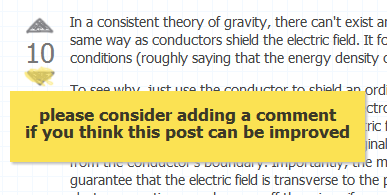From The Suicide of Socrates: On a day in 399 BC the philosopher Socrates stood before a jury of 500 of his fellow Athenians accused of "refusing to recognize the gods recognized by the state" and of "corrupting the youth."...Socrates was 70 years old and familiar to most Athenians. His anti-democratic views had turned many in the city against him. He was sentenced by the Athenian jury of 500 to death.
Talk about dying to prove a point, Socrates had to die to prove that democracy was flawed. Downvoting is democratic. That does not mean that downvoting is, as a phenomenon, appropriate, and in that I agree with Socrates; democracy is not always appropriate, in particular, when the democratic opinion is evil, like for a lynch mob, or getting an answer here downvoted 150 times. So what to do about it?
Now for sure, a lack of democracy is not an improvement upon democracy, so any substitute for downvoting would have to indeed be an improvement, and Socrates views and the actions of his students were not innocuous. The crucial distinction here is that there is a difference between democracy and jurisprudence, and Athenian democracy would not be regarded as a proper forum for a trial by peers in a modern setting. For example, in a modern trial by peers, a defense team can object to jurors incapable of deciding an issue on the merits, and if a trial by a judge is elected, that judge knows the law very very well, he would be the equivalent of a superuser, or moderator on this site.
Democratic downvoting has nothing in common with jurisprudence, even with a judge making a decision, the defense is allowed to present arguments, and for downvoting, the recipient has no proper recourse, may not know what he is being charged with; sloppiness, incomprehensibility, an unusual opinion that no one likes and so forth.
So why do we have unchallenged downvoting on this site; why does the accused have no recourse in the usual sense of jurisprudence? My answer to this is what could be called "programmer's funk." Sitting in our dark caves clicking on keys, we are very like those interpreting shadows in Socrates' cave; we are not enlightened, and are condemned to repeating several thousand years of evolution of thought because we just didn't consider what is already well known.
Consider, for example, that the one can rebut an expert review of a scientific article during the scientific review process. What that allows for, that is not available on this site, is the ability to present maverick or controversial opinions; opinions which may truly advance science by their novelty and overtly unexpected appropriateness. Downvoting discards anything not boringly conventional, that is, without appeal, argument or the application of reason.
So, rather that reinventing the wheel, I would suggest that the incorporation of elements of jurisprudence into downvoting would be appropriate to alleviate the "programmer's funk" on this site. For example, and hardly the only one possible, would be a new ability to challenge a downvote. Now in many cases, a downvote is just and earned, but it is not those cases that are problematic. I leave it to the reader to consider which elements of jurisprudence would be appropriate to include, it does not have to be complicated, just better.
BTW, this site is not completely without recourse for downvoting, one can, for example, post on meta and ask for a second opinion. However, that, if used extensively, would clutter meta with historical arguments the likes of which would be of little interest for readers of already resolved issues.
EDIT: This site already acknowledges that it takes more expertise to downvote correctly than upvote by requiring only 15 reputation points to allow one to upvote, but 100 to downvote. And yet, when I explain that it takes more expertise to downvote correctly, I get...wait for it...downvotes. The people who don't like what I have said here also do a good job of misinterpreting it. I am not suggesting eliminating downvoting, I would just rather increase the reputation required for downvoting, because my empirical observation is that at the current required reputation level, too many of the downvotes are of the poor quality type. I would suggest that since one is not even in the "leagues" without a reputation of 200, that with a reputation of 100 downvoting will be of low quality. In case one is wondering why that is, the answer is simple. Suppose two opinions agree, the odds of both being correct are pretty good. But if two opinions differ, then one of them is more wrong than the other. One can improve the odds of a judicious downvote if the reputation of the downvoting person exceeds that of the reputation of the person whose answer is downvoted. Requiring a reputation of 200 I feel is minimalist to allow downvoting. I suppose one could show this numerically. However, the use of more expert opinions for critical disagreement is generally understood, even on this site (15 versus 100).

